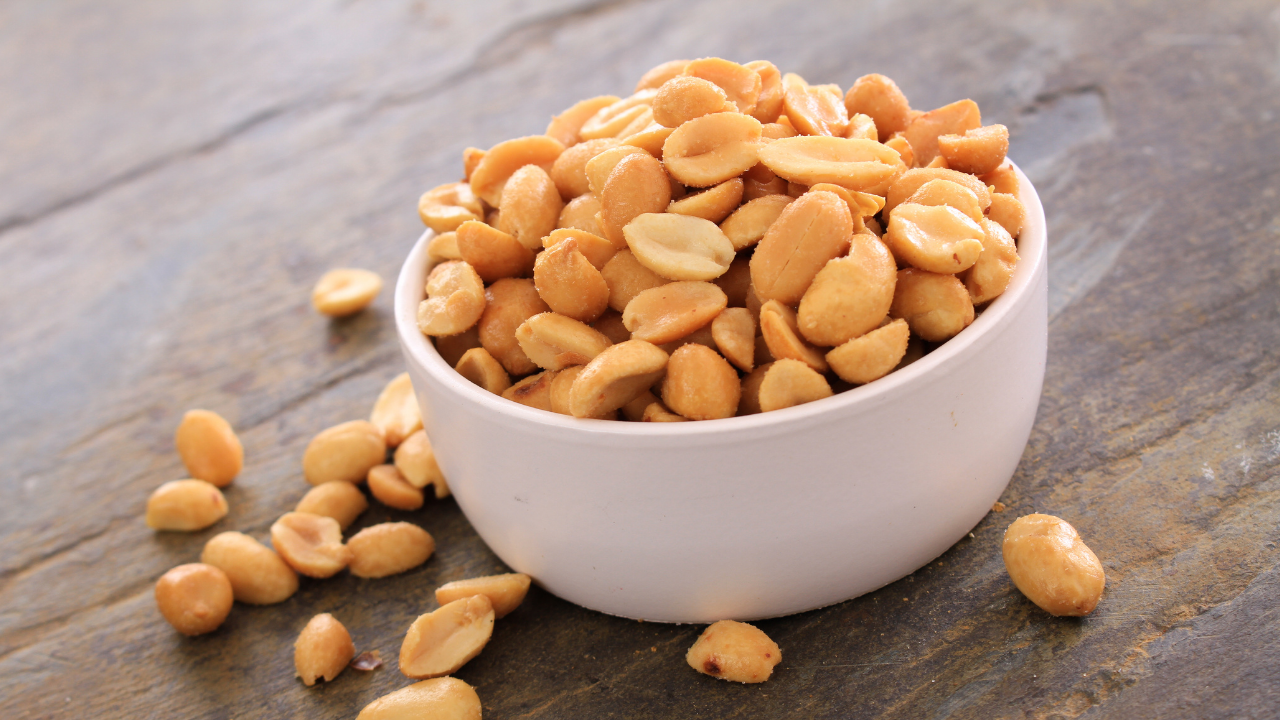Peanuts, often categorized alongside nuts but botanically legumes, are a popular snack and ingredient worldwide. While their taste and versatility make them a favorite, many people wonder about their health benefits. Are peanuts good for you? Here are ten reasons why incorporating peanuts into your diet can be beneficial.
Are Peanuts Good for You?
1. Rich in Nutrients
Peanuts are packed with essential nutrients. They contain high levels of protein, healthy fats, vitamins, and minerals. A serving of peanuts provides a significant amount of your daily recommended intake of several nutrients, including vitamin E, niacin, folate, magnesium, and phosphorus.
The nutrient density of peanuts makes them a powerful addition to your diet, supporting overall health and wellness. They offer a convenient way to boost your intake of essential nutrients without consuming excessive calories.
2. High in Healthy Fats
Peanuts are high in monounsaturated and polyunsaturated fats, which are beneficial for heart health. These healthy fats help to lower bad cholesterol levels (LDL) and raise good cholesterol levels (HDL), reducing the risk of heart disease.
Incorporating peanuts into your diet can improve your lipid profile, aiding in the prevention of cardiovascular conditions. This makes peanuts a heart-friendly snack that contributes to long-term cardiovascular health.
3. Excellent Source of Protein
Peanuts are an excellent source of plant-based protein, which is crucial for muscle repair, growth, and overall body function. One ounce of peanuts contains about 7 grams of protein, making them a substantial protein source, especially for vegetarians and vegans.
Protein from peanuts can help maintain muscle mass, support metabolic processes, and provide a sustained energy release. This makes peanuts an ideal snack for those leading an active lifestyle or looking to increase their protein intake.
4. Rich in Antioxidants
Peanuts contain antioxidants such as resveratrol and flavonoids, which combat oxidative stress in the body. These antioxidants help protect cells from damage caused by free radicals, reducing the risk of chronic diseases such as cancer.
Consuming peanuts regularly can contribute to a lower risk of oxidative stress-related conditions, promoting longevity and overall health. Their antioxidant properties make peanuts a valuable addition to a balanced diet.
5. Aid in Weight Management
Despite their high-calorie content, peanuts can aid in weight management. The combination of protein, healthy fats, and fiber in peanuts helps to increase satiety and reduce overall calorie intake. They help control hunger and prevent overeating.
Studies have shown that regular consumption of peanuts is associated with lower body weight and a reduced risk of obesity. This makes peanuts a smart choice for those looking to maintain or lose weight.
6. Promote Heart Health
In addition to healthy fats, peanuts contain other heart-healthy nutrients such as magnesium, niacin, and arginine. These nutrients help to maintain healthy blood vessels, lower blood pressure, and improve overall heart function.
Including peanuts in your diet can contribute to better heart health and lower the risk of heart-related diseases. Their nutrient profile supports cardiovascular wellness and enhances overall heart function.
7. Support Brain Health
Peanuts are rich in niacin and vitamin E, both of which are important for brain health. Niacin helps to protect against age-related cognitive decline and diseases like Alzheimer’s, while vitamin E acts as an antioxidant, protecting brain cells from damage.
Regular consumption of peanuts can support cognitive function and promote mental clarity. Their brain-boosting nutrients make peanuts beneficial for maintaining brain health and preventing cognitive disorders.
8. Stabilize Blood Sugar Levels
Peanuts have a low glycemic index (GI), meaning they have a minimal impact on blood sugar levels. Their combination of fiber, protein, and healthy fats helps to slow the absorption of sugar into the bloodstream.
This makes peanuts an excellent snack for individuals with diabetes or those looking to manage their blood sugar levels. Their ability to stabilize blood sugar contributes to overall metabolic health.
9. Improve Digestive Health
Peanuts are a good source of dietary fiber, which is essential for healthy digestion. Fiber helps to regulate bowel movements, prevent constipation, and promote the growth of healthy gut bacteria.
Including peanuts in your diet can enhance digestive health and prevent digestive disorders. Their fiber content supports a healthy gut and contributes to overall digestive wellness.
10. Boost Energy Levels
The nutrient-dense profile of peanuts provides a steady source of energy. The combination of protein, healthy fats, and carbohydrates ensures a sustained energy release, making peanuts a great snack for maintaining energy levels throughout the day.
Eating peanuts can help prevent energy slumps and keep you feeling energized. Their ability to provide sustained energy makes peanuts an ideal snack for those with busy lifestyles or in need of an energy boost.
In conclusion, peanuts offer a plethora of health benefits, making them a valuable addition to a balanced diet. From promoting heart health to supporting brain function, their nutrient-rich profile provides numerous reasons to enjoy peanuts regularly. Incorporating peanuts into your daily routine can lead to improved overall health and well-being.

